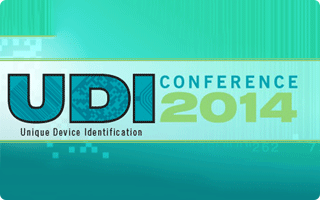GS1 Healthcare Newsletter - July 2014
Table of content
- Special feature
- Government & Regulatory news
- U.K. eProcurement strategy mandates GS1 Standards for the NHS
- The Australian healthcare industry data crunch reveals the high cost of bad quality data
- Philippines adopt Global Trade Item Numbers for healthcare products
- New regulation in Argentina on traceability for medical devices
- Canada working on a UDI system
- News from around the world
- GS1 Healthcare updates
- GS1 GDSN implementation guide for UDI updated
- GS1 Germany new knowledge center: experience the benefits of GS1 Standards for healthcare live
- GS1 Argentina releases its first healthcare reference book
- GS1 Japan organises UDI & drug traceability conference
- GS1 Malaysia organises its first local Healthcare seminar
- Upcoming events
Special feature
GS1 Healthcare Reference Book - new edition released
GS1 Healthcare has recently published the sixth edition of the GS1 Healthcare Reference Book (Edition 2014/2015), a compendium of case studies containing examples of the many success stories and promising projects that are advancing the implementation of GS1 Standards in the healthcare supply chain. 2014 marks the beginning of the implementation of the U.S. FDA UDI rule which requires all medical devices sold in the U.S. to be identified and marked, and product information to be stored in the FDA database. With the need to standardise and comply with regulations, more organisations, governmental bodies and companies in the healthcare sector are turning to GS1.

The case studies demonstrate the wide range of activities taking place around the world – all intended to achieving visibility in the healthcare supply chain by implementing traceability systems and solutions based on GS1 Standards. Although the case studies may have different drivers, they all ultimately have the same goal: to improve patient safety and supply chain efficiency. This edition shares many examples of GS1 Standards implementations from different stakeholders:
- Abbott drives global deployment of GS1 Standards to benefit customers and patients
- B. Braun improves the management of its global master data with GDSN
- Hospital Authority Hong Kong modernises its pharmaceutical product supply chain
- UCB implements a serialisation programme using GS1 Standards
- and many more...
Read the GS1 Healthcare Reference Book
Government & regulatory news
UK: eProcurement Strategy mandates GS1 standards for the NHS
In May, the UK Department of Health published the eProcurement Strategy for the National Health Service (NHS). The strategy estimates that hospital trusts can save £1.5bn by the end of 2015-16 by taking a cohesive approach to procurement based on global GS1 Standards, national infrastructure and local systems delivery.
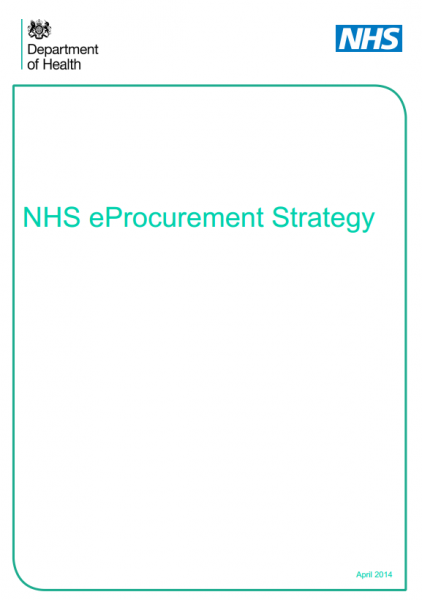
The report mandates the use of GS1 Standards for the following:
- All NHS suppliers and providers must adopt Global Location Numbers (GLN) which will be centralised in a GLN registry provided by the Department of Health
- All NHS suppliers must provide a Global Trade Item Number (GTIN) on all their items (products AND services)
- Suppliers are required to place product data into a GS1-certified datapool to enable master data to be synchronised in near real time and shared globally with buying organisations
The GS1 Global Data Synchronisation Network will enable this master data to be synchronised in near real time, thereby ensuring that NHS provider catalogues always contain accurate master data
The use of GS1 Standards will improve product recalls, as the Strategy’s introduction says: “The strategy also drives patient safety benefits. Bar codes based on the GS1 Standards can be read at any point in the healthcare supply chain so that a product subject to a safety alert can be quickly located and recalled. Providers of NHS-funded healthcare, including the independent sector, must be able to electronically track and trace individual medicines and medical devices to a specific patient.”
All NHS trusts are also required to roll-out GS1-barcoded patient wristbands, to enable the use of electronic patient records to track the use of all medicines and implantable medical devices via bedside scanning.
For more information, https://www.gov.uk/government/publications/nhs-e-procurement-strategy
The Australian Healthcare Industry Data Crunch reveals the high cost of bad quality data
The latest industry research study “The Australian Healthcare Industry Data Crunch Report” reveals the impact of inaccurate and inconsistent data across the Australian healthcare industry and the effect on patient safety. The report highlights a range of areas where further adoption of the GS1 Standards and the National Product Catalogue (NPC) can significantly improve data quality, leading to savings of between AUD$30 million - AUD$100 million per annum.
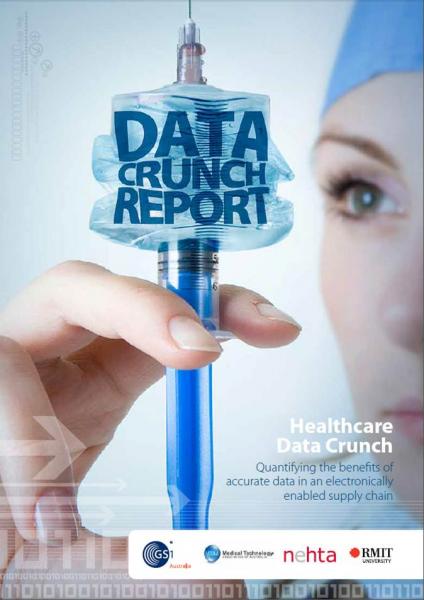
Key findings include unnecessary spending in the following areas:
- Procurement: Estimate of AUD$8.8 million spent on resource to manually check unit of measure data in purchase orders, and an estimated AUD$4.37 million spent to ship emergency deliveries due to under supply.
- External logistics: Estimate of AUD$6.98 million used by different supply chain partners to collect weights and dimensions for the same products.
- Reimbursement of prostheses: Estimate of AUD$1.26 million spent for clarifying prostheses rebate codes while an approximate AUD$8.75 million is lost in revenue from the unclaimed joint replacement prostheses.
The study was commissioned by the healthcare industry with the support of the National E-Health Transition Authority Supply Chain Reform Group (NEHTA SCRG) to focus attention on the need for continuous data quality improvement in healthcare.
Philippines adopt Global Trade Item Number for healthcare products
The Philippines Food and Drug Administration (FDA) has adopted GS1 Standards to uniquely identify health products in order to enable traceability and visibility of healthcare products in their country.
The new regulation imposes the use of GTIN on all FDA-related products and should take effect by June 2015.
New regulation in Argentina on traceability of medical devices
In April 2014, ANMAT released a new regulation on traceability of medical devices establishing a traceability system from point of production or import to the point of care. A traceability system will have to be implemented for a number of high-risk class implantable medical devices within 6 or 12 months from the date of enforcement of this provision. The regulation mandates the labelers to mark the external package of the affected medical device with a Global Trade Item Number (GTIN), serial number, lot number and expiration date following the GS1 Standards.
Canada working on a UDI system
In June 2014, Health Canada has issued a draft notice on plans to implement a national Unique Device Identification (UDI) system based on the International Medical Device Regulators Forum (IMDRF) guideline of December 2013.
The regulator plans to issue further guidance on what the Canadian UDI system will look like within the next two years. Once a UDI regulation is published, medical devices licensed for sale in Canada will need to comply.
News from around the world
LEEM fights against counterfeited medicines in Africa
In March 2014, Les Entreprises du médicament (LEEM), the union for French pharmaceutical companies, organised its annual African seminar which gathered around 70 participants from different Africans countries such as Nigeria, Niger, Congo, Gabon, Madagascar, Cameroun, and Senegal. The objective of this annual three-day seminar is to find solutions to better track and trace medicines along the supply chain, and fight against their counterfeiting as approximately 60% of drugs are counterfeited in that region. This year’s seminar was focused on traceability and the potential use of GS1 DataMatrix.
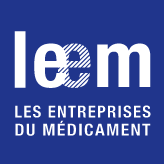
During their various interventions, the Cameroon regulatory bodies recommended the use of GS1’s DataMatrix as a solution to fight counterfeit drugs. This was also reinforced by a presentation of Sanofi Nigeria who pointed out that Mobile Health Application were not the solution as less than 5% of the Nigerian population uses their mobile to get information on medicines.
LEEM recommends the African countries to collaborate and promote together a unique standard in order to be more powerful against counterfeiters.
Watch video on the importance of DataMatrix (French)
Gartner announces winners of the 2014 Healthcare Supply Chainnovators Awards
Gartner, the leading information technology research and advisory company, announced the two winners of the Healthcare Supply Chainnovator awards:
- Cook Medical for building collaborative relationships with a dedicated Supply Chain Improvement Team (SCIT) and for meeting the industry date for assigning GS1 Global Trade Item Numbers (GTINs) to products – read article
- Mercy ROi for pioneering Spinal Implant Distribution
The Supply Chainnovator awards recognises supply chain innovation and impact delivered by supply chain organisations.
GS1 Healthcare update
GS1 GDSN implementation guide for UDI updated
To assist manufacturers and GDSN Data Pools in submitting their device information to the U.S. FDA Global UDI Database (GUDID), GS1 has developed a GDSN implementation guide which is frequently updated. This guide explains how to use the GDSN to securely provide data to the GUDID; it focuses currently on the U.S. as the U.S. FDA is the only regulator who has established such a database for medical devices.
Read the implementation guide now.
GS1 Germany: Experience the benefits of GS1 Standards for healthcare live
The extended GS1 Germany Knowledge Center is now officially open. A highlight for the healthcare sector: a sectoral live component displays the benefits of GS1 Standards along the patient pathway.
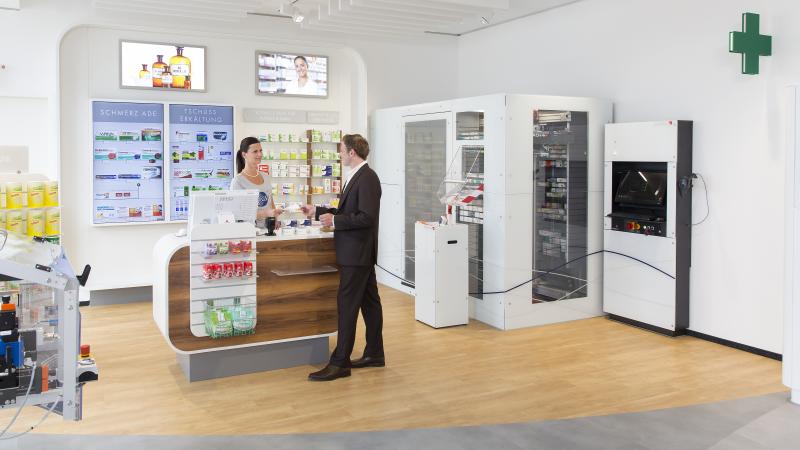
State-of-the-art conference facilities are not the only thing to occupy the 2,500 square metres of floor space at the company's premises in Cologne. Industry-specific live components also showcase some real-world applications and the benefits of GS1 Standards. It brings to life the application of barcode and co. in, for example, the fields of healthcare. The Healthcare live! show-case simulates the patient pathway and displays in a realistic way how GS1 Standards can contribute to better patient safety and process optimisation in healthcare. Models demonstrate the efficient management of sterile goods as well as the use of GS1 DataMatrix on patient wristbands or anticounterfeiting of pharmaceuticals.
For more information, click here
GS1 Argentina releases its first healthcare reference book
GS1 Argentina released its first Healthcare Reference book “Casos de exito de trazabilidad del Sector Salud en Argentina”, in Spanish and in English. This compendium of case studies contains examples of the many success stories and promising projects that are advancing the implementation of GS1 Standards in the healthcare supply chain in Argentina. In recent years, traceability has become a hot topic due in part to notable failures occurring across the supply chain. In response to this public health concern, there have been several regulations emerging from ANMAT aimed at minimising failures and ultimately improving patient safety.
See GS1 Argentina's healthcare reference book
GS1 Japan organises first UDI & drug traceability conference
GS1 Japan organised its seminar on UDI and drug traceability in March 2014 which gathered over 300 participants in Tokyo. Speakers included representatives from the healthcare sector such as Mr. Nakao from the Japan Federation of Medical Devices Association (JFMDA), Ph. Ogawa from the Pharmaceuticals and Medical Devices Agency (PMDA), Jay Crowley from USDM, Ulrike Kreysa and Chuck Biss from GS1 Global, and many more.
The aim of the meeting was to share and discuss the progress made on improving the healthcare system worldwide with GS1 Standards. Mr. Koji Nakao, Chairman of the Japanese Federation of Medical Device Associations (JFMDA), advocated the introduction of UDI regulation in Japan. “Consistent and meaningful use of UDI throughout the supply chain could be achieved only by a mandatory scheme. The rate of GS1 bar coding on sales packages has gone up to 98%, but we need 100%.” he pointed out.
At the end of the day, a panel discussion was held and Mr. Makoto Hirose (Director, Office of Safety Promotion, Safety Division, Pharmaceutical and Food Safety Bureau, MHLW), explained MHLW’s policy regarding UDI and drug traceability. Though a mandatory regulation is not on the immediate plan, he said, the existing bar code guidelines for medical devices and drugs should be revised in accordance with overseas regulatory development.
GS1 Malaysia organises its first local healthcare seminar
GS1 Malaysia organised its first healthcare seminar "Raising the Bar on Patient Safety and Supply Chain Efficiency" in April in Kuala Lumpur.
Many international and local speakers presented the benefits in implementing GS1 Standards:
- GS1 representatives: key Note speaker Miguel Lopera, CEO of GS1 Global Office stressed the benefits of GS1 Standards in the healthcare sector, and Maria Palazzolo, GS1 Australia’s CEO, highlighted the Australian experience on how the GS1 Standards increased the efficiency in their healthcare supply chain through e-NEHTA (National E-Health Transition Authority)
- Hospital representative: Feargal McGroarty, National Haemophilia System project manager at St James’s Hospital in Ireland, showcased how GS1 Standards reduced medication errors in his country.
- Manufacturing companies: B.Braun Medical Industries & Pharmaceuticals shared their positive experience in implementing GS1 in their organisation
- Regulatory body: Malaysia Medical Device Authority updated the participants on the latest requirements on the Malaysian Medical Device Act.
Upcoming events
Global GS1 Healthcare Conference
Join us in Copenhagen, 21-23 October 2014 for the 26th Global GS1 Healthcare Conference.
The three-day conference includes plenary sessions, implementation reality sessions focused on GS1 Standards implementations, an ask the experts session, working lunches on public policy and hospital implementations, and last but not least the opportunity to visit one of the six site visits available!
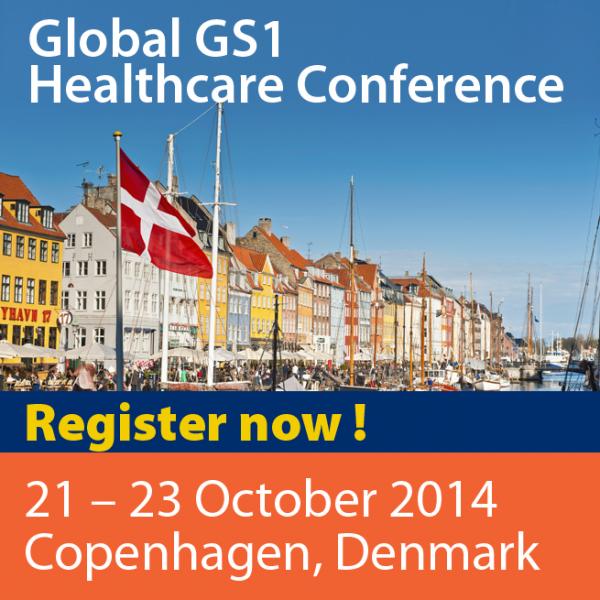
Many top speakers have already confirmed:
- Lord Philipp Hunt and Andy McKinn present the new NHS eProcurement Strategy in the UK
- Eric van Ark and Justin Bitter, from Bernhoven hospital (NL), share their experience on how to implement traceability in a hospital
- Jay Crowley, former U.S. FDA, shares his analysis on the first UDI rule deadline and beyond
- LIF (Association of research based pharmaceutical industry in Sweden) explains their way from Nordic Trade Item Numbers to Global Trade Item Numbers
- and many more...
To find out more and view the whole programme, visit our dedicated webpage.
*****************************
HPAC webinars
Since February 2014, the Healthcare Provider Advisory Council organises monthly webinars every second Thursday of the month. During the webinars, key speakers talk about their experience with implementing GS1 Standards in their care giving environment (hospital, hospital pharmacy...). Participants can then ask questions to get live answers to all their inquiries.
The next HPAC webinar will take place:
Thursday 11 September
8:30-9:30 East Coast U.S. Time / 13:30-14:30 UK Time / 14:30 - 15:30 CET
Presenter: Richard Price from European Association of Hospital Pharmacists (EAHP)
************************************
The unSUMMIT for healthcare barcoding conference 2014
17 - 19 September 2014
New Orleans, Louisianna, US
The unSUMMIT is the premier educational event for hospitals interested in Barcoding at the Point of Care (BPOC), informing pharmacists, nurses, information technology directors, and patient safety officers. Produced by the TerraPharma Project since 2005, unSUMMIT gathers the nation’s foremost thought leaders on BPOC system planning, implementation and optimisation. As part of the larger VARTECH CodeZone Exhibit Hall featuring The unSUMMIT Pavilion, unSUMMIT will offer attendees direct access to advanced BPOC solutions from top technology solutions suppliers.

**********************************
UDI Conference
28 - 29 October 2014
Baltimore, Maryland, USA
As an educational authority on UDI, the 6th annual UDI Conference will continue to bring industry stakeholders together with the FDA UDI Team Leads to ensure accurate UDI implementation and continued adoption momentum. The UDI Conference is THE annual industry gathering for medical device manufacturers, distributors, and hospitals to convene to learn about the UDI Regulation and the Global UDI Database (GUDID).
Attend the conference to:
- Learn the technical details about the UDI regulation from the FDA Team
- See how to best utilise the Global UDI Database (GUDID) to harness the data
- Understand the requirements for your automatic identification systems
- Create your plan for implementation
- Gain the knowledge and establish resources needed to guide your organisation
The UDI Conference allows you to interact directly with the FDA UDI team, investigate UDI technology in the exhibit hall, plan your migration path, and network with peers in the healthcare industry in one place, at one time. To secure your seat at the best price, register by 5 September. Enter "GS1G" in the promotional code field to automatically save $100. Team registrations are encouraged. If 2 or more from the same company are planning to attend, contact nicole@clariongroupinc.com to receive a discount code.
For more information, click here
Register today at http://udiconference.com/register.html
**********************************
Event-based traceabiliy
To enable Event Based Traceability, a GSMP Mission Specific Work Group is developing EPCIS related standards for Security, Choreography and Checking Services. View the latest videos and webinar available to find out more.
Are you a solution provider?
Participate in the standards development, prototypes, piloting and commercially supply Event Based Traceability (EBT) compliant solutions - Get involved now!







